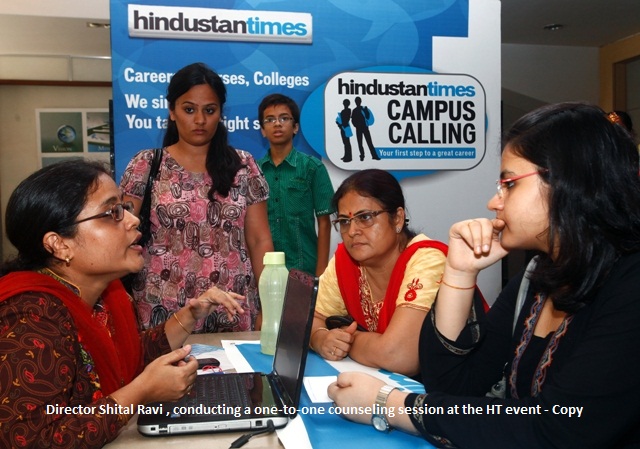DEVELOP YOUR ASSERTIVENESS SKILLS:
Posted on 30th Jan 2015
DEVELOP YOUR ASSERTIVENESS SKILLS:
Do you often find that others coerce you into thinking their way? Is it difficult for you to express your positive or negative feelings openly and honestly? Do you sometimes lose control and become angry at others who don't warrant it?
A "yes" answer to any of the above questions may be an expression of a common problem known as "lack of assertiveness."
What is assertiveness?
Assertiveness is the ability to formulate and communicate one's own thoughts, opinions and wishes in a clear, direct, and non-aggressive way. It is the ability to express oneself and one’s rights without violating the rights of others. The ability to be assertive is an asset which is necessary to achieve worthwhile aims and impose some order and justice in one’s environment.
Many people recognize they are being taken advantage of and/or have difficulty saying "no." Others do not see themselves as unassertive but do feel depressed or unfulfilled, have lots of physical ailments, have complaints about work but assume the boss or teacher has the right to demand whatever he/she wants, etc. Nothing will change until the victim recognizes his/her rights are being denied and he/she decides to correct the situation. Keeping a diary may help you assess how intimidated, compliant, passive or timid you are or how demanding, whiny, or aggressive others are.
Almost everyone can cite instances or circumstances in which he/she has been outspoken or aggressive. These instances may be used to deny we are unassertive in any way. However, many of us are weak in some ways--we can't say "no" to a friend asking a favor, we can't give or take a compliment, we let a spouse or children control our lives, we won't speak up in class or disagree with others in a public meeting, we are ashamed to ask for help, we are afraid of offending others, and so on. Ask yourself if you want to continue being weak.
One may need to deal with the anxiety associated with changing, to reconcile the conflicts within your value system, to assess the repercussions of being assertive, and to prepare others for the changes they will see in your behavior or attitude. Talk to others about the appropriateness of being assertive in a specific situation that concerns you. Consider where your values--your "shoulds"--come from. As children we are bombarded with rules: Don't be selfish, don't make mistakes, don't be emotional, don't tell people if you don't like them, don't question people, don't interrupt, don't trouble others with your problems, don't complain, don't upset others, help people who need help, and on and on. Do any of these instructions sound familiar? They help produce submissive children--and adults. There are probably good reasons for many of these rules-for-kids but as adults we need not blindly follow rules. Indeed, every one of these injunctions should be broken under certain conditions: You have a right to make mistakes, to be emotional, to express your feelings, to have your own reasons, to stop others and ask questions, to ask for help, to ask for reasonable changes, to have your work acknowledged, to be alone, to say "no" or "I don't have time," and so on. The old feelings deep inside of us may still have powerful control over us. We can change, however.
There are many ways to devise effective, tactful, fair assertive responses.
USE "I" MESSAGES
An "I" message is a good way to let people know what you are thinking. It is made up of three parts.
- Behavior -- what it is, exactly, that the other person has done or is doing
- Effect -- what is happening because of their behavior
- Feelings -- what effect does their behavior have on your feelings?
By using this kind of message, you are giving another person complete information, leaving no room for second guessing or doubt.
CHOOSE ASSERTIVE WORDS CAREFULLY
Use factual descriptions instead of judgments
Compare the following:
"This is sloppy work." (Aggressive)
"The pages in this report are out of order." (Assertive)
Avoid exaggerations
Compare the following:
"You never are on time!" (Aggressive)
"You were 15 minutes late today. That's the third time this week." (Assertive)
Use "I" not "You"
Compare the following:
"You always interrupt my stories!" (Aggressive)
"I would like to tell my story without being interrupted."(Assertive)
Express thoughts, feelings, and opinions reflecting ownership
Compare the following:
"He makes me angry." (Denies ownership of feelings)
"I get angry when he breaks his promises." (Assertive and owns feelings)
CHECK-UP
The following questions will help you to assess your assertiveness;
- When you differ with someone you respect, are you able to speak up and share your own viewpoint?
- Are you able to refuse unreasonable requests made by friends or co-workers?
- Do you readily accept positive criticism and suggestion?
- Do you ask for assistance when you need it?
- Do you usually have confidence in your own judgment?
- If someone else has a better solution, do you accept it easily?
- Do you express your thoughts, feelings, and beliefs in a direct and honest way?
- Do you try to work for a solution that, to the degree possible, benefits all parties?
A "yes" response indicates an assertive approach.
ACTION PLAN
Here are some communication techniques that can help you convey a positive assertive attitude:
- Use suitable facial expressions, always maintaining goodeye contact.
- Keep your voice firm but pleasant.
- Pay careful attention to your posture and gestures.
- Listen...and let people know you have heard what they said.
- Ask questions for clarification.
- Look for a win-win approach to problem solving.
Specific Techniques for Assertiveness
- Be as specific and clear as possible about what you want, think, and feel.
- "Own" your message. Acknowledge that your message comes from your frame of reference, your conception of good vs. bad or right vs. wrong, your perceptions. You can acknowledge ownership with personalized ("I") statements such as "I don't agree with you".
- Ask for feedback. "Am I being clear? How do you see this situation? What do you want to do?" Asking for feedback can encourage others to correct any misperceptions you may have as well as help others realize that you are expressing an opinion, feeling, or desire rather than a demand.
- Encourage others to be clear, direct, and specific in their feedback to you.
Learning to Become More Assertive
As you learn to become more assertive, remember to use your assertive "skills" selectively. It is not just what you say to someone verbally, but also how you communicate nonverbally with voice tone, gestures, eye contact, facial expression and posture that will influence your impact on others. You must remember that it takes time and practice, as well as a willingness to accept yourself as you make mistakes, to reach the goal of acting assertively.
Shital Ravi.
Counseling Psychologist.
- Exam
- Careers
-
 Inlaks Shivdasani Foundation for any field Scholarship Opportunities
Inlaks Shivdasani Foundation for any field Scholarship Opportunities
-
 Asha Shree Endowment for Graduate or post-graduate professional degree courses Scholarship Opportunities
Asha Shree Endowment for Graduate or post-graduate professional degree courses Scholarship Opportunities
-
 Gaurav Foundation for Indian school-college and college abroad Scholarship Opportunities
Gaurav Foundation for Indian school-college and college abroad Scholarship Opportunities
-
 TOEFL Scholarship for 9,000+ institutions Scholarship Opportunities
TOEFL Scholarship for 9,000+ institutions Scholarship Opportunities
-
 Fair and lovely scholarship for any graduate and post-graduate Scholarship Opportunities
Fair and lovely scholarship for any graduate and post-graduate Scholarship Opportunities
-
 dfsd
dfsd
- fgdf
- Tuesday, 23 September 2014
-
 dfsd
dfsd
- fgdf
- Tuesday, 23 September 2014
-
 Nice design
Nice design
- Sakura
- Thursday, 31 July 2014
-
 Hello, this is a demo
Hello, this is a demo
- david Hoang
- Thursday, 31 July 2014











